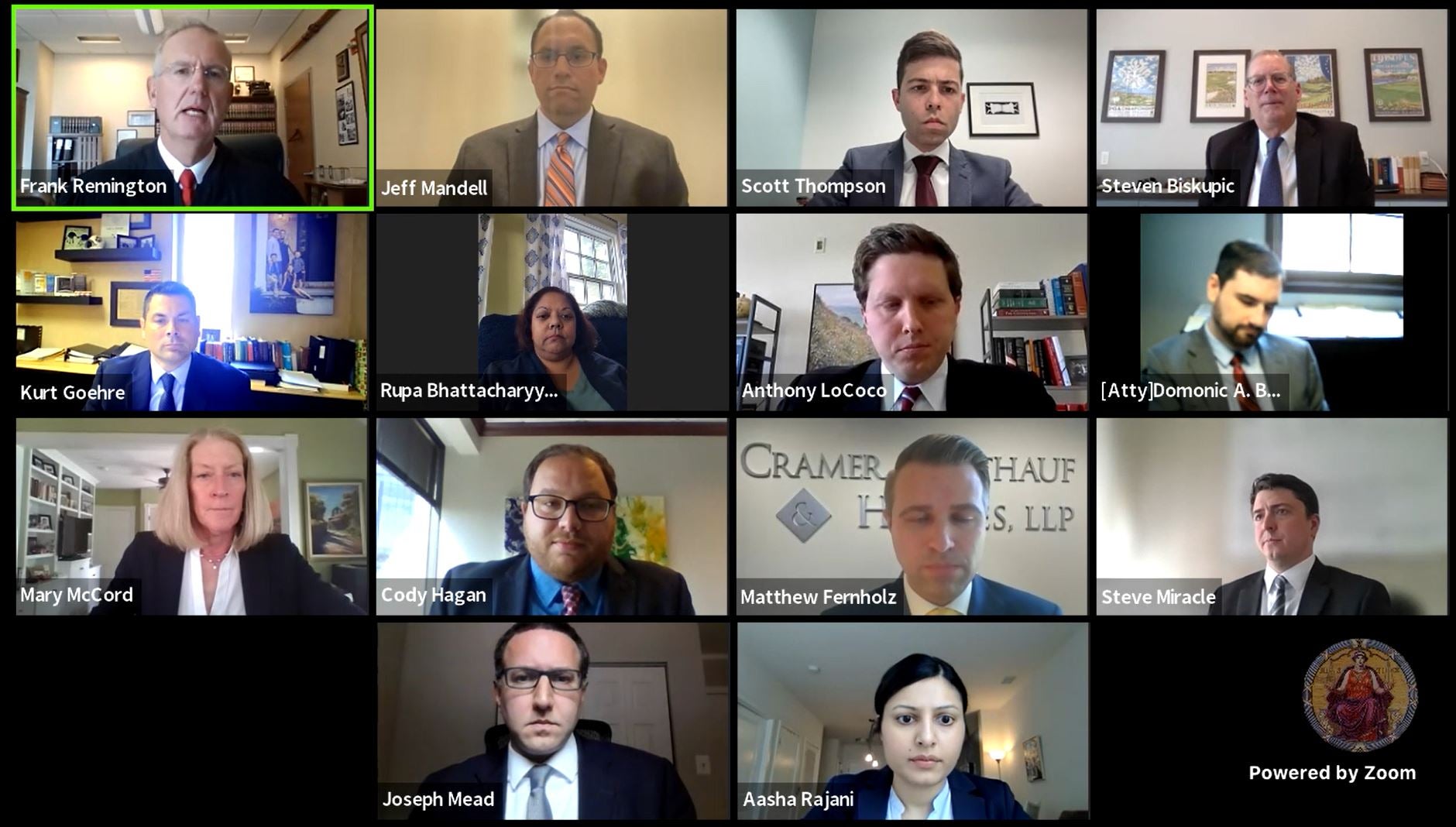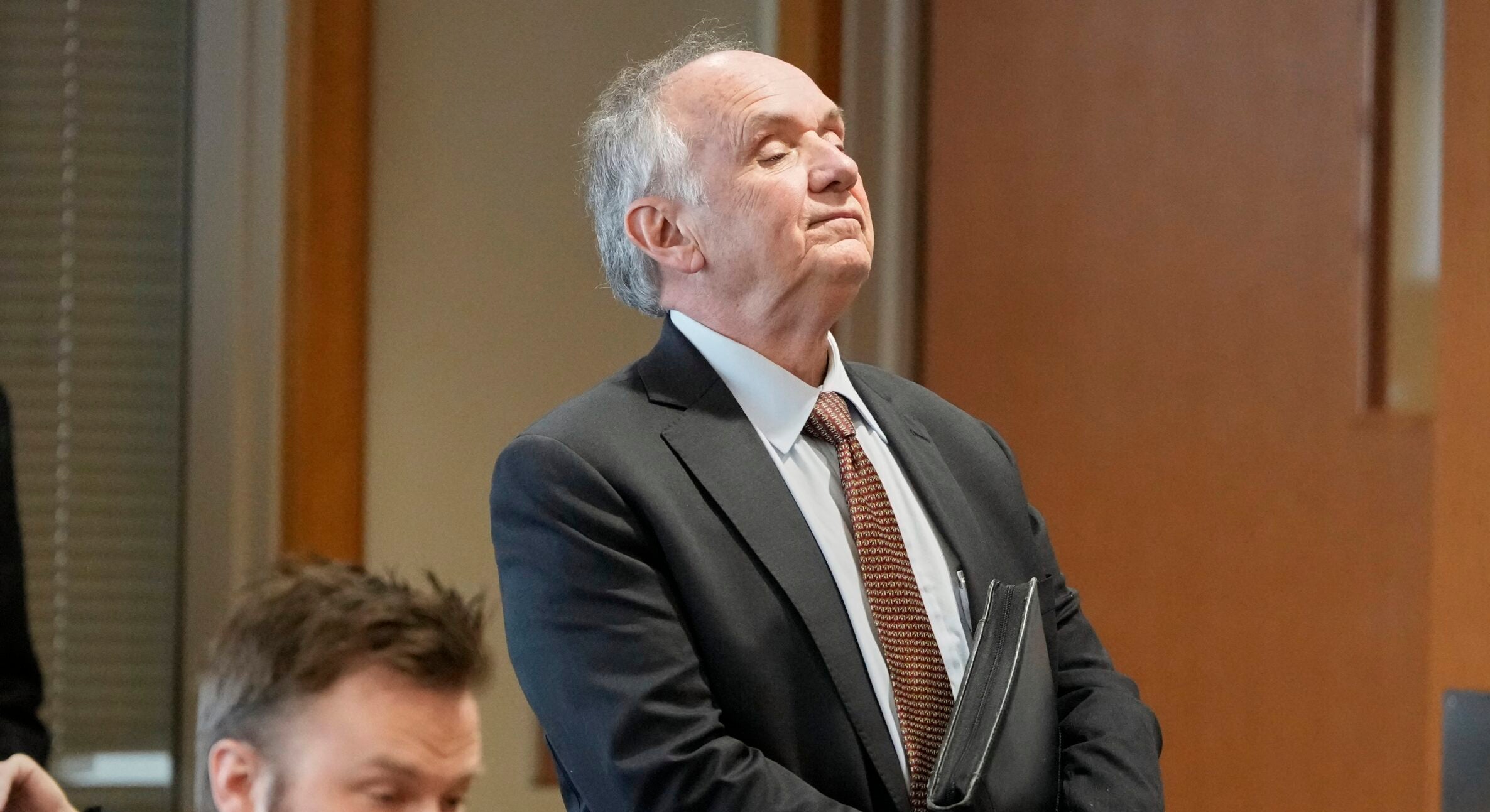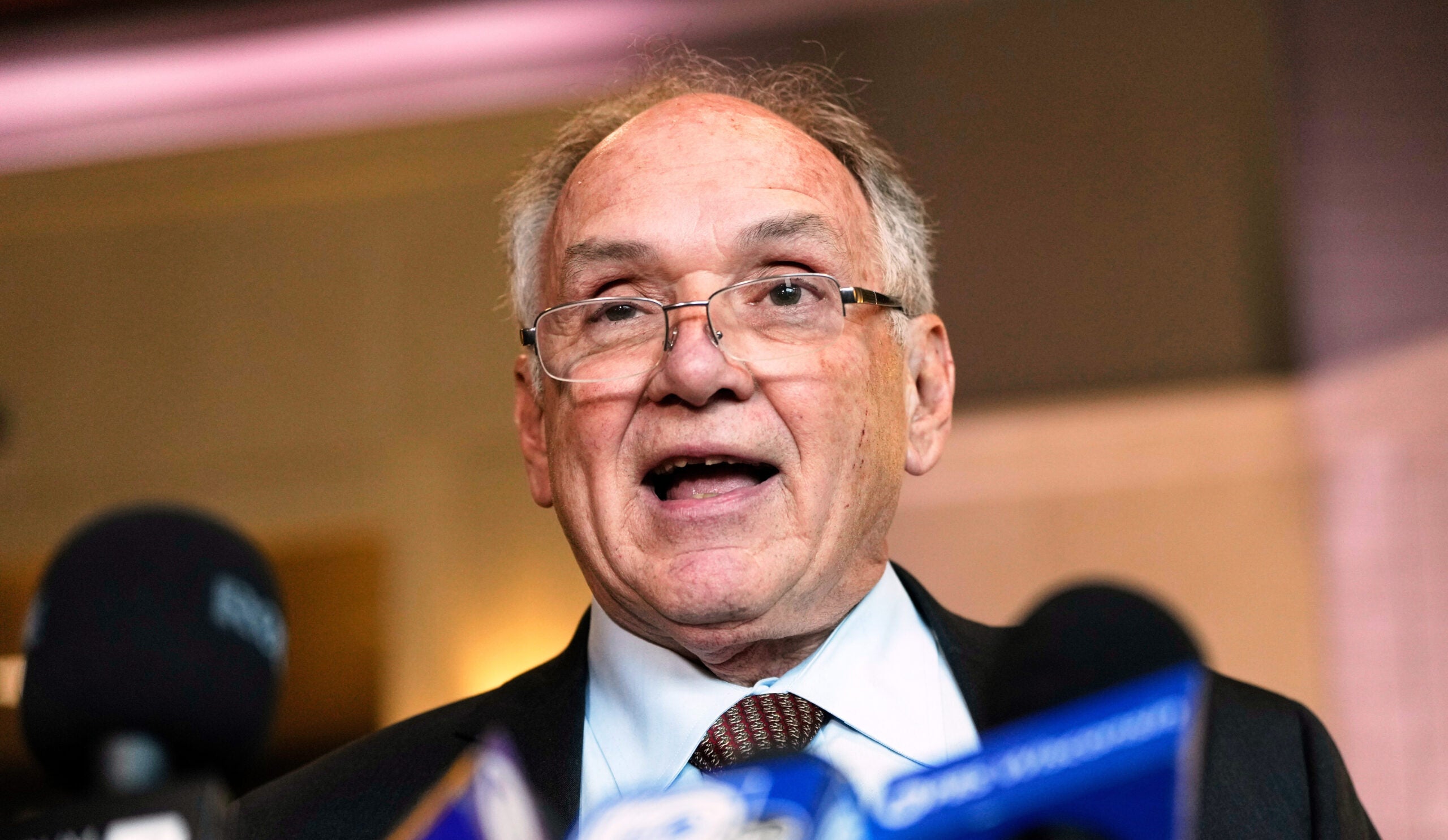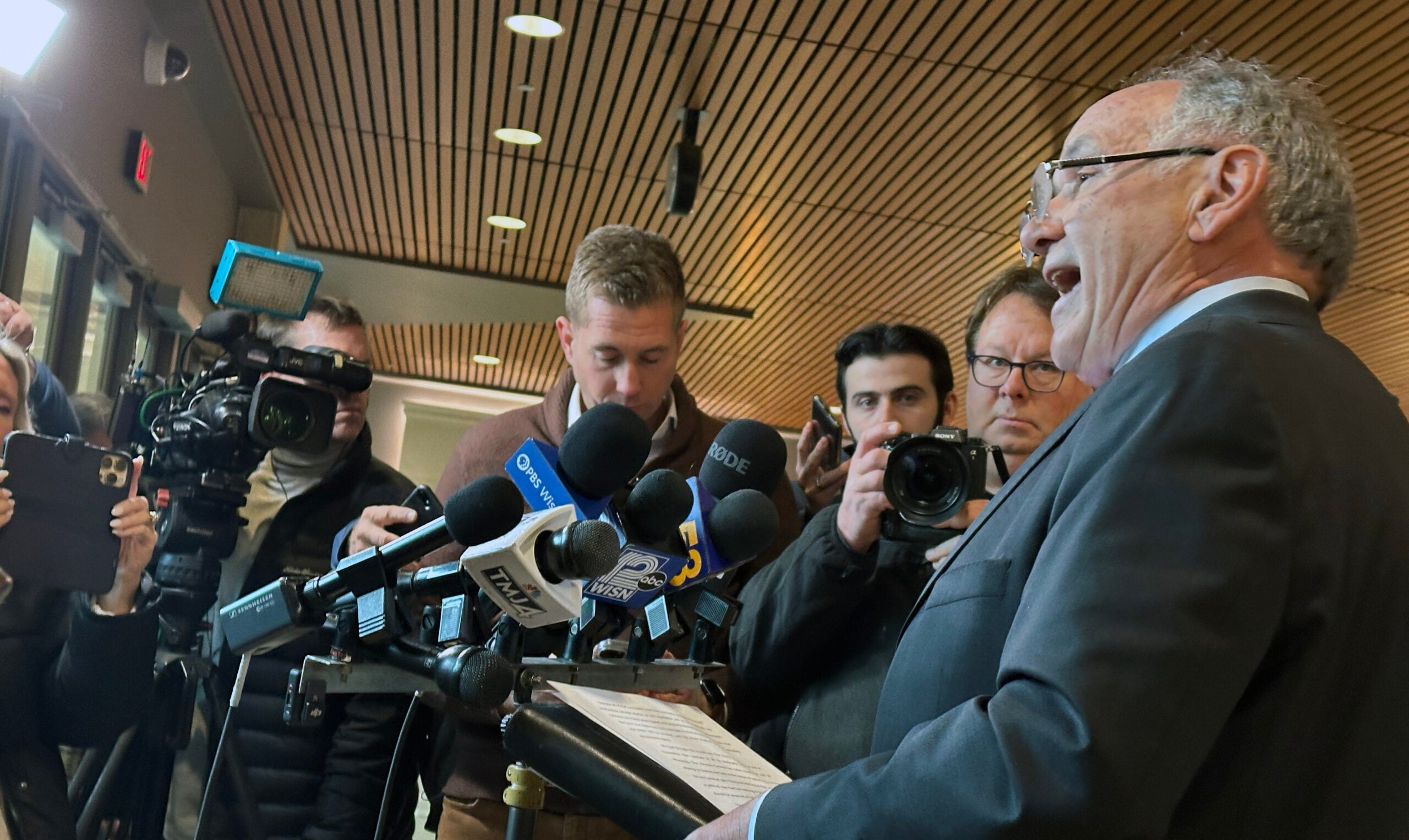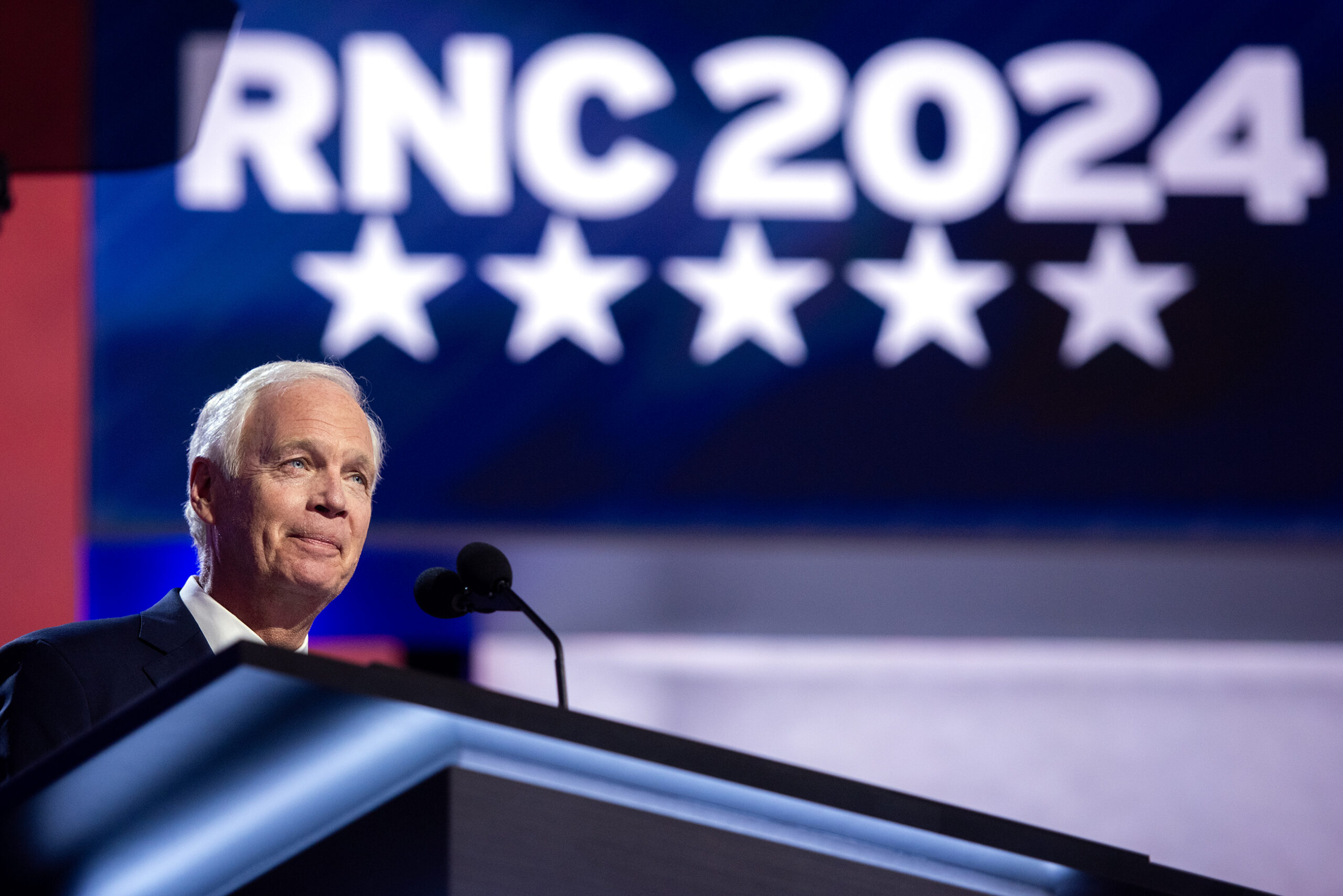A jury trial in the lawsuit against Wisconsin Republicans who posed as electors in 2020 could take place shortly before the 2024 presidential election.
Dane County Judge Frank Remington told attorneys in the case Wednesday that, assuming the case moves forward, the jury trial would begin Sept. 3, 2024. Remington scheduled the trial to last one month.
Democrats filed the lawsuit last year, arguing the 10 Republicans and two attorneys who advised them broke a variety of laws, including one that bans people from falsely acting as public officials. Plaintiffs are seeking punitive damages of up to $2.4 million.
News with a little more humanity
WPR’s “Wisconsin Today” newsletter keeps you connected to the state you love without feeling overwhelmed. No paywall. No agenda. No corporate filter.
Republicans named in the lawsuit met at the state Capitol to cast votes for Trump on Dec. 14, 2020, the same day Wisconsin’s Democratic electors cast Wisconsin’s official electoral votes for President-elect Joe Biden.
Both meetings happened shortly after the Wisconsin Supreme Court rejected the Trump campaign’s last remaining lawsuit in Wisconsin seeking to overturn Biden’s victory in Wisconsin. Trump and his allies had previously lost several cases challenging election results in both state and federal courts.
Wisconsin’s actual electors sent official documents affirming Biden’s victory to the president of the U.S. Senate, the Wisconsin secretary of state, the National Archives and the chief judge of the U.S. District Court for the Western District of Wisconsin. The Republicans posing as electors sent their own official-looking documents to the same places.
The Democratic plaintiffs bringing the lawsuit include Khary Penebaker and Mary Arnold, two of the official electors who cast votes for Biden, as well as Democratic activist Bonnie Joseph.
Defendants include all 10 of the Republicans who acted as electors: Andrew Hitt, Robert Spindell, Bill Feehan, Kelly Ruh, Carol Brunner, Scott Grabins, Kathy Kiernan, Darryl Carlson, Pam Travis and Mary Buestrin. Also named as defendants in the lawsuit are attorneys Jim Troupis and Kenneth Chesebro, two lawyers who helped steer the GOP electors strategy for Trump.
At a scheduling hearing Wednesday discussing the timeline for the case, Jeff Mandell, one of the attorneys representing Democrats, noted that one of the goals for plaintiffs was to prevent Republican plaintiffs from serving as electors in future elections. Mandell said the next slates of electors would be chosen in October 2024.
“So we would like the trial to be over and that relief to have been decided whether we get it or not before that deadline,” Mandell said.
The case would need to clear other procedural hurdles before a jury trial takes place. Defendants plan to file a formal motion to dismiss the lawsuit early next month.
“I don’t know where the plaintiffs are going,” said Matthew Fernholz, an attorney representing Troupis. “I don’t know if these are claims that are going to focus on the specific plaintiffs or if we’re going to get into more of a political theater.”
Other recent procedural rulings from Remington have gone the way of Democratic plaintiffs. Earlier this month, Remington rejected a motion by Republicans to dismiss the case. Last month, Remington dismissed a motion by Troupis to dismiss the lawyers who brought the Democratic lawsuit.
In a separate lawsuit, Remington also ruled this month that Spindell, a Republican member of the Wisconsin Elections Commission, should have recused himself when the WEC heard a complaint against the electors. That ruling will likely force the WEC to reconsider a formal complaint against the electors.
Wisconsin Public Radio, © Copyright 2026, Board of Regents of the University of Wisconsin System and Wisconsin Educational Communications Board.

